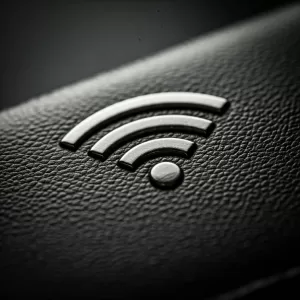Radio Frequency Identification (RFID) has come a long way from being just a simple technology for tracking goods. It has evolved into a powerful tool with applications across various industries, such as retail, healthcare, manufacturing, and even education. As we move closer to 2025 and beyond, RFID is expected to bring even more changes that will redefine how businesses and everyday operations function. Let's explore what the future holds for RFID technology.

1. Widespread Adoption Across Industries :
By 2025, RFID technology is expected to become even more widespread, extending its reach into industries that are just beginning to explore its potential. For instance, while RFID has already made a big impact in retail by helping inventory management and improving customer experience, sectors like healthcare, banking, logistics, and education will likely witness massive RFID adoption. Hospitals could use RFID to track patients and medical equipment in real-time, ensuring better patient care. Schools and universities might use it for smarter access control and attendance systems.
2. Integration with the Internet of Things (IoT) :
One of the biggest transformations expected by 2025 is the deeper integration of RFID with the Internet of Things (IoT). RFID and IoT will work together to connect physical objects to the internet, enabling devices to communicate with each other without human intervention. Imagine a world where refrigerators order groceries when supplies run low, or warehouses automatically restock items when inventory levels drop. This fusion of RFID and IoT will make supply chains smarter and more responsive.
3. RFID in Smart Cities :
As smart cities are becoming a reality ,RFID technology will play a crucial role in making urban environments more efficient. RFID tags embedded in vehicles, streetlights, or even garbage bins will enable better traffic management, smarter waste disposal, and real-time tracking of public transport. Citizens will benefit from improved public services, while governments will have better control over city infrastructure.
4. Increased Use of RFID in Retail for Personalization :
By 2025, RFID will not only be used for tracking items in retail but also for improving the customer personalization and experience . RFID will help retailers offer personalized shopping experiences based on customers' preferences. For example , smart fitting rooms equipped with RFID tags will suggest products that match a customer’s style or previous purchases. Self-checkout kiosks powered by RFID will reduce wait times and allow customers to bill and purchase their selected items without depending on staffs .
5. Advancements in RFID Hardware :
As technology evolves, RFID hardware will become more efficient, smaller, and less expensive. Nano-RFID tags, which are incredibly tiny, will be widely used in industries like healthcare and fashion to track individual items with precision. Additionally, the development of RFID systems that can withstand harsh conditions (such as extreme temperatures or water exposure) will open up new applications in areas like mining, agriculture, and the food industry.
6. Data Security and Privacy :
With the increasing use of RFID in various sectors, concerns about data security and privacy are expected to grow. By 2025, RFID systems will likely come equipped with more advanced security features to protect against data breaches and unauthorized tracking. Encryption techniques and improved authentication protocols will help ensure that only authorized personnel can access sensitive information.
7. RFID in Healthcare: Transforming Patient Care :
In the healthcare industry, RFID technology is can completely change patient care by 2025. Hospitals and clinics will increasingly rely on RFID to track patients, monitor the availability of medical equipment, and manage medication. RFID wristbands will allow doctors and nurses to track a patient's medical history, allergies, and treatments with a simple scan. This will not only improve patient safety but also reduce administrative errors and save valuable time.
8. RFID-Powered Supply Chains :
The future of supply chain management will heavily rely on RFID technology. With RFID, businesses can track products from the manufacturing stage to the point of sale in real time. This will reduce losses due to theft, fraud, or misplaced items and provide greater transparency in the supply chain. By 2025, most industries will use RFID to make supply chains more efficient, reliable, and sustainable.
9. Sustainability and RFID :
As the world focuses more on sustainability, RFID will play a crucial role in helping businesses reduce waste and promote eco-friendly practices. In industries like fashion, RFID will support the recycling of textiles by tracking materials throughout their lifecycle. By 2025, RFID-enabled "green" supply chains will allow companies to minimize environmental impact, improve resource management, and promote ethical business practices.
11. Artificial Intelligence and RFID: Smarter Systems :
Looking beyond 2025, RFID systems integrated with artificial intelligence (AI) will become smarter and more autonomous. AI will enhance RFID systems by enabling them to predict trends, track customer behaviour, and optimize logistics without human input. For instance, AI-driven RFID systems can analyze purchasing habits and instantly adjust stock levels to meet demand, ensuring shelves are always stocked with the right products at the right time. This real-time responsiveness will not only help inventory management but also provide deeper insights into consumer preferences, allowing businesses to stay ahead of trends and improve customer satisfaction .
The future of RFID is bright, with rapid advancements expected to revolutionize industries around the globe. By 2025, RFID will be more than just a tool for tracking items—it will be a key technology driving efficiency, sustainability, and innovation across various sectors. From healthcare to retail, manufacturing to banking, RFID’s potential to transform the way we live and work is limitless. As businesses continue to embrace this technology, we can look forward to a world where everything is more connected, efficient, and personalized, thanks to RFID.

